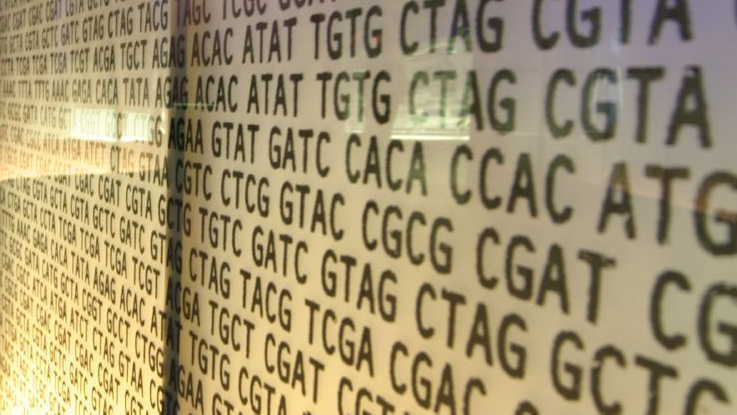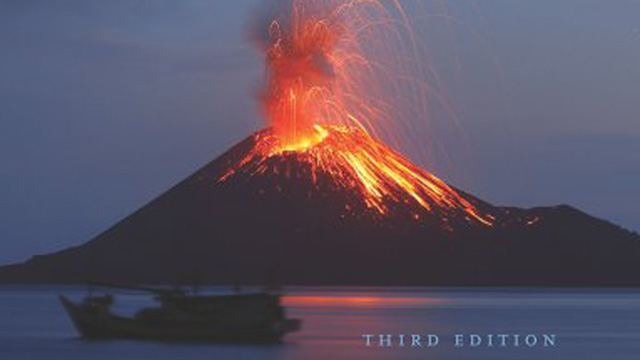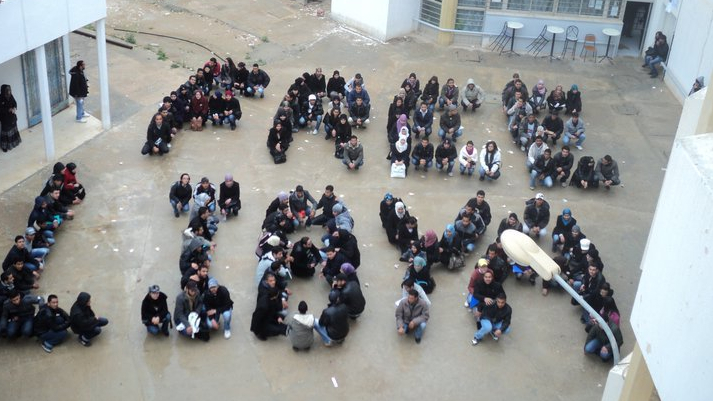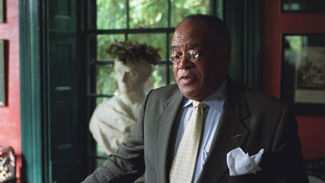Taking advantage of social networking software to increase collaboration and innovation in the workplace is the next big thing, says Tom Davenport, professor of management at Babson.
All Articles
So I’ve been thinking some about the fact that “The Social Network” portrays people–even techno-meritocrats–as worse than they really are. I’ve been criticized, of course, for not recognizing the artistry […]
“Once I am sure there’s nothing going on/ I step inside, letting the door thud shut,” begins Philip Larkin’s poem “Church Going.” “Another church: matting, seats, and stone,/ And little […]
Wisconsin governor Scott Walker defied a court order to ban citizens from the capitol building during his budget address. Citizens were left out in the cold while Walker’s allies were […]
It turns out that there are small clusters of innovation being created all over the world, in some places you might least expect.
The Cancer Genome Atlas project, already several years underway, is transforming the way scientists think about and treat cancer.
Only 2% of the 3 billion DNA base pairs in the human genome actually code for proteins, but the rest of our non-coding genes are proving vital to understanding a host of diseases like autism and schizophrenia.
New York Mayor Michael Bloomberg—himself a billionaire captain of the newspaper industry—has a novel perspective: maybe unions are good for business.
“Volcanoes of the World” is an invaluable resource for volcano neophytes and aficionados alike. Check out some of its best charts and figures here.
Here are two cutting-edge solutions for how we can leverage social media in times of crisis.
The asteroid discovery record of 19 objects in one night was set on January 29. The asteroid discovery record was accomplished using a powerful telescope on the Hawaiian island of Maui.
Columbia economics professor Jeffrey Sachs quotes Gandhi who famously said that there are enough resources on Earth for everybody’s need, but not enough for everybody’s greed.
A volunteer effort to map all the food stores in Brooklyn, N.Y., is an example of two rising trends: citizen mapping and increasing scrutiny of urban Americans’ access to healthy food.
Scientists are buying up tickets for privately-run trips to space. Space tourism teams like Virgin Atlantic offer relatively cheap ways for cosmologists to observe their subject of study.
“The age of plastic, disposability and consumerism was an artefact of overproduction in the oil industry. Higher prices and harder access will usher in a different age,” says Andrew Simms.
Three new technologies aim to tap unconventional energy sources—automobile motion and the temperature and saltiness of seawater—to produce vast new supplies of electricity.
“Demand for water in agriculture and energy production could spike in the coming decades while catastrophic floods and droughts strike more often,” reports The Independent.
A new printing technology is in development that promises to pack between 10 and 30 percent more energy into batteries for electric vehicles helping them to compete with conventional cars.
The world’s leading particle accelerator, the Large Hadron Collider, has yet to find any evidence of certain particles that physicists depend on to explain our subatomic world.
Italian inventor Andrea Rossi claims to have developed commercial-ready cold fusion technology that can produce large amounts of energy from dirt-cheap nickel and hydrogen.
“It never phased him that we’d call out different tunes from the stage and change the set around endlessly to stop from being bored,” Radiohead front man Thom Yorke says […]
In a mere decade and a half, Google has gone from cuddly online startup to scary virtual colossus. The internet search engine offers a range of services that now also […]
An excellent way to visualise China’s place as the second largest economy is to match its individual provinces with entire nations that have a comparable Gross Domestic Product (GDP).
Enzymes like Telomerase and Resveratrol, though not the Fountain of Youth unto themselves, offer tantalizing clues to how we may soon unravel the aging process.
When it comes to the Libyan revolution and the peculiar madness of Colonel Gadaffi, what is the right move?
The life of Reverend Peter J. Gomes, a self-described oddity, may appear to be somewhat of an enigma. Rev. Gomes, widely considered one of the country’s leading preachers, died Monday at 68. Gomes was a gay black Baptist preacher and a registered Republican. And yet, while these seeming contradictions–notably being Christian and gay–are irreconcilable to some, according to Rev. Gomes, his identity was “reconciled in me by a loving God.”
It almost goes without saying that the recent demise of bookseller Borders, which is in the process of liquidating more than 200 of its superstores around the nation, was inevitable. […]
In the first of several posts on the AAAS meetings held this month in Washington, DC, Simone Lewis-Koskinen reports on a panel at the conference that encouraged scientists to “communicate […]
Last month, the School of Communication at American University hosted Seth Mnookin, best-selling author of The Panic Virus, a stirring look at America’s debate over childhood vaccination. The full video […]
Normally I don’t fall too far behind when it comes to the plethora of volcano images that show up on the friendly confines of the interweb. Well, this week looks […]


















